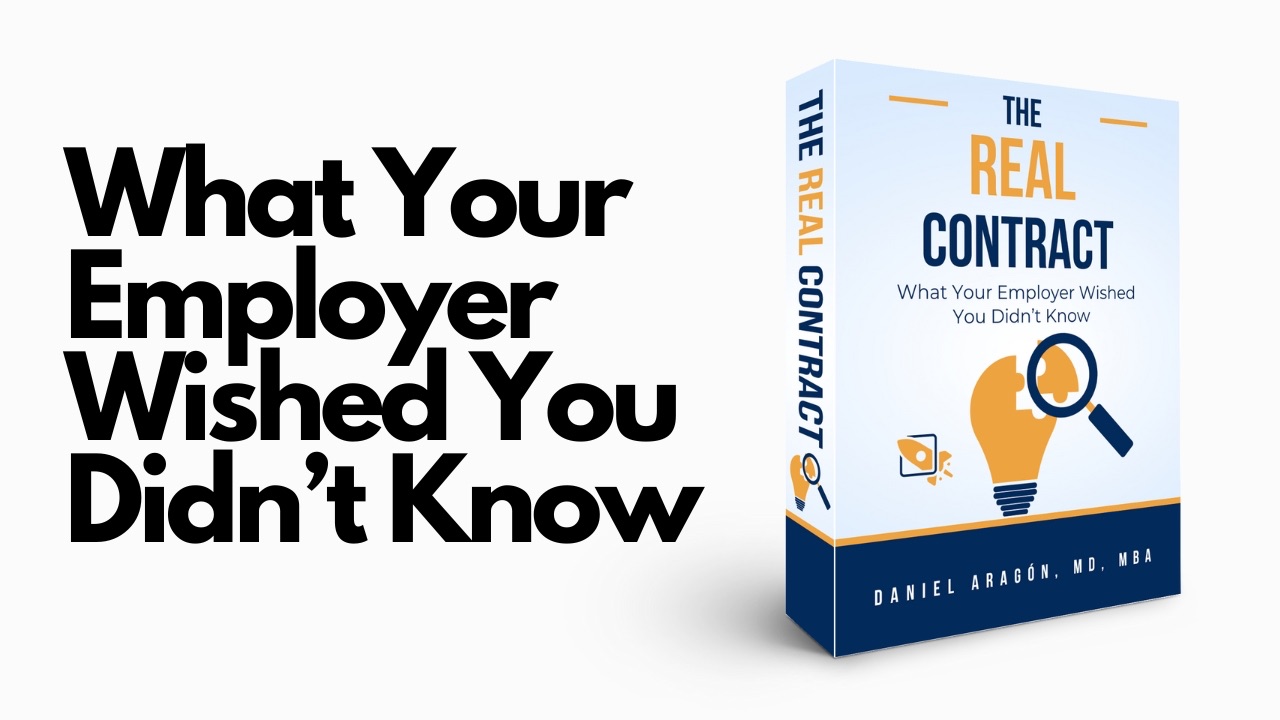
How to Negotiate Your Physician Contract Without Sounding Pushy (Or Getting Screwed)
The ideas for this article were shamelessly stolen (like a true artist) from Exactly What To Say by Phillip M Jones. If you’re a physician looking to improve your contract negotiation skills, I highly recommend giving it a read.
Hardcover | Paperback | Kindle | Audiobook
Key Takeaways
✅ Your employer expects you to negotiate. If you don’t, you’re leaving money (and time) on the table.
✅ How you ask matters. A single phrase can change the whole conversation.
✅ You don’t have to be aggressive. You just need the right words.
✅ Rejection-free negotiation exists. You can ask without fear of losing the offer.
✅ The best contracts go to those who ask. The worst contracts go to those who assume everything is “fair.”
Are You Afraid to Negotiate Your Contract?
Let’s be real - most doctors don’t negotiate.
Why? Because they don’t want to sound ungrateful. Because they don’t want to risk the job. Because they assume the contract is “standard.”
Big mistake.
📌 Here’s the truth:
- Hospitals and private practices expect you to negotiate.
- The salary they offer you? They probably have more in the budget.
- The call schedule? It’s flexible - for those who ask.
- The non-compete? It’s only “set in stone” until someone pushes back.
The only physicians who get exactly what they want are the ones who ask.
The #1 Mistake Physicians Make in Negotiation
Most doctors get their contract and don’t push back.
📌 Why?
- They assume the first offer is the best offer. (It’s not.)
- They don’t want to seem difficult. (Employers don’t see it that way.)
- They don’t know what to say. (That part is easy.)
Good news: You don’t have to be aggressive. You don’t have to be pushy. You just need the right words.
How to Negotiate Without Feeling Awkward
The Simple Phrase That Makes Negotiation Easy
🚨 “I’m not sure if this is possible, but...”
That’s it. That’s the magic phrase.
📌 Why does this work?
- It removes pressure. Employers don’t feel like you’re demanding.
- It creates curiosity. They listen instead of shutting down.
- It invites conversation. Instead of rejection, you get a discussion.
How to Use This Phrase in Your Negotiation
💰 If you want more money:
✅ Say: "I'm not sure if this is possible, but I was hoping we could discuss aligning my salary closer to the MGMA median."
📅 If you want a better schedule:
✅ Say: "I'm not sure if this is possible, but I’d love to explore a schedule that reduces my call burden."
🚫 If you want to adjust the non-compete:
✅ Say: "I'm not sure if this is possible, but I’d like to discuss reducing the non-compete radius."
See what happens?
- You sound professional, not demanding.
- You open the door for negotiation instead of rejection.
- You make it easy for them to say yes.
The Power of the Word “But”
Want to make your negotiation even stronger? Use the word “but” strategically.
📌 Example:
✅ Say: "I love the team, and this opportunity is exactly what I’ve been looking for. But I’d love to discuss adjusting the compensation to better reflect my experience."
Why does this work?
- People focus on what comes after “but.”
- You soften the negotiation while keeping the request strong.
- You make them feel like saying yes is the logical next step.
How to Make Employers WANT to Say Yes
Employers don’t just say yes because you ask. They say yes when it’s easy for them to justify it.
📌 How to do this:
- Use data → "MGMA data shows the median for this region is [$X]."
- Show your value → "Given my skill set and experience, I’d like to explore an increase in salary."
- Give them a reason → "This adjustment would bring the offer more in line with industry standards."
The easier you make it for them to say yes, the more likely they are to do it.
The Best Time to Negotiate
Timing matters. Ask at the right moment, and you increase your chances of getting what you want.
📌 When to negotiate:
✅ Right after you receive the offer → Before they finalize everything.
✅ After a great interview → When they are most excited about you.
✅ When they need you → If they’re short-staffed or hiring fast.
📌 When NOT to negotiate:
❌ Before they offer you the job → They haven’t decided on you yet.
❌ After you sign the contract → Too late.
If You Don’t Ask, You Don’t Get
Here’s the bottom line:
✅ Your employer expects you to negotiate.
✅ You don’t have to be aggressive to ask for more.
✅ If you don’t negotiate, you WILL leave money and flexibility behind.
Now the real question is: Are you going to ask for what you deserve, or are you going to take whatever they give you?






